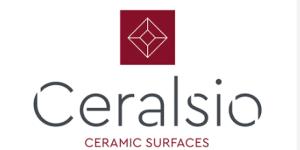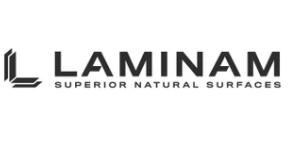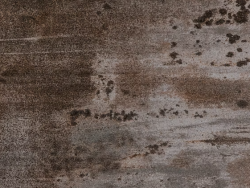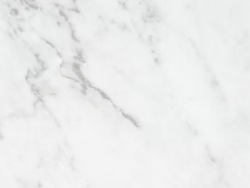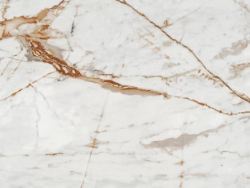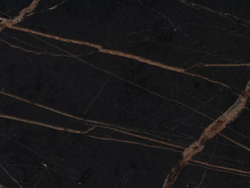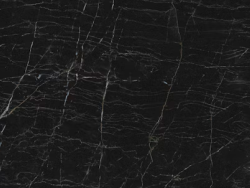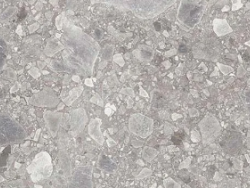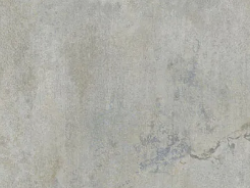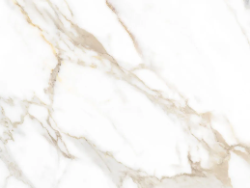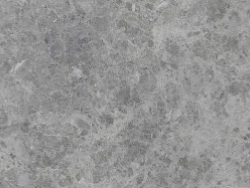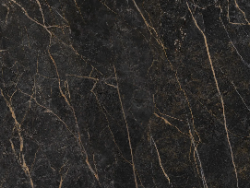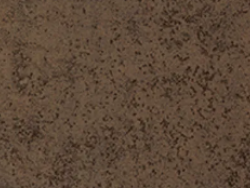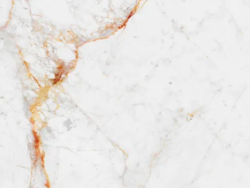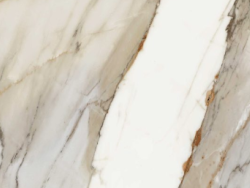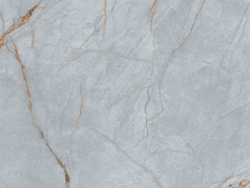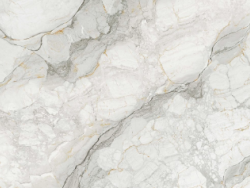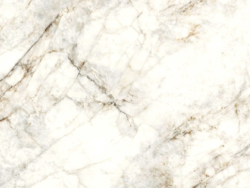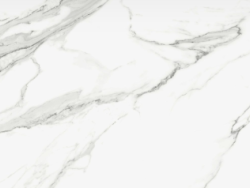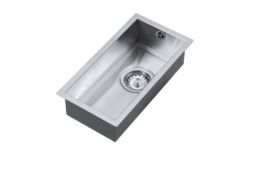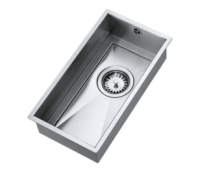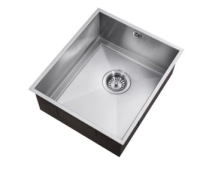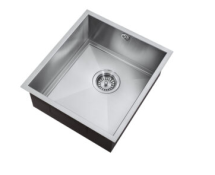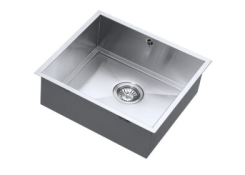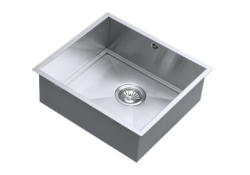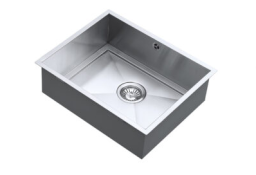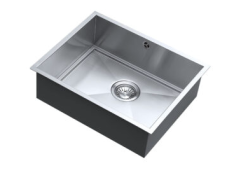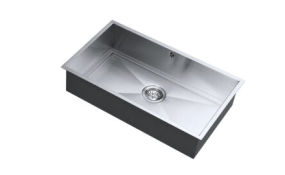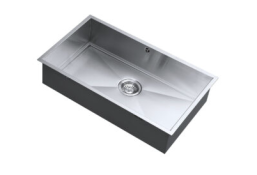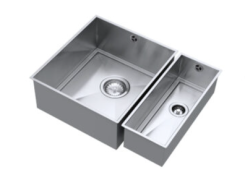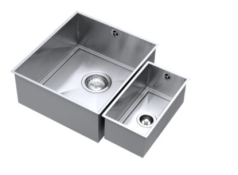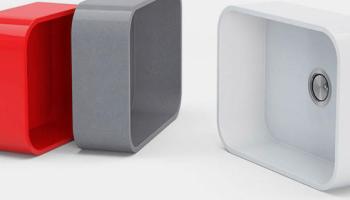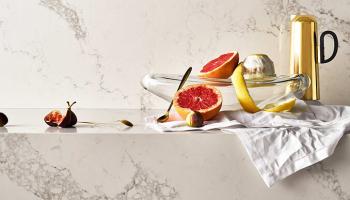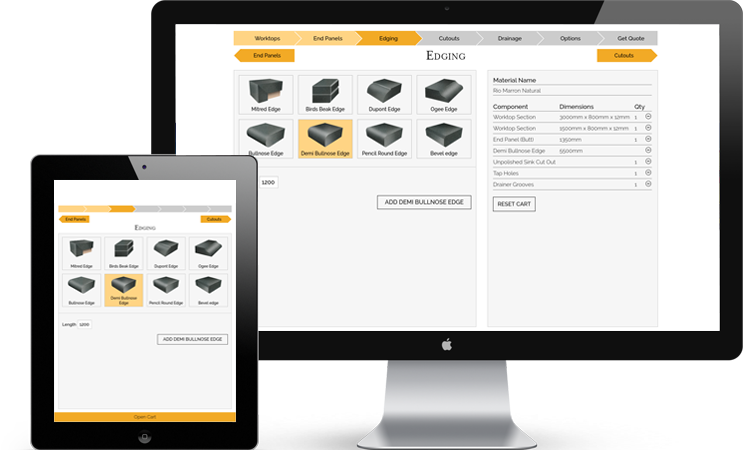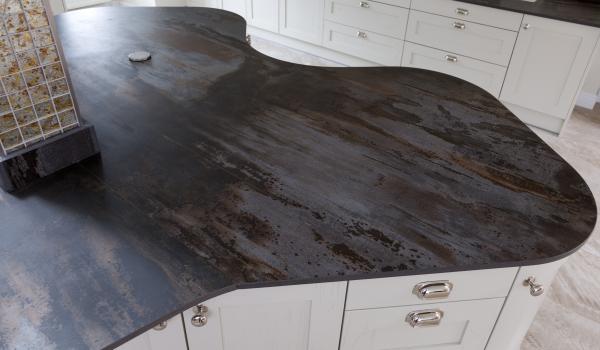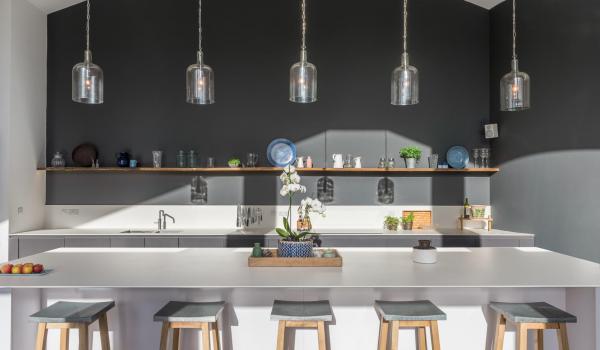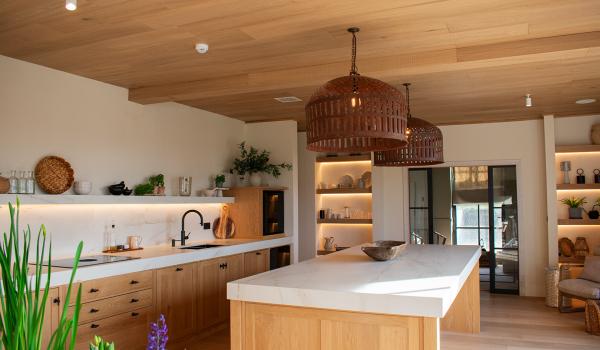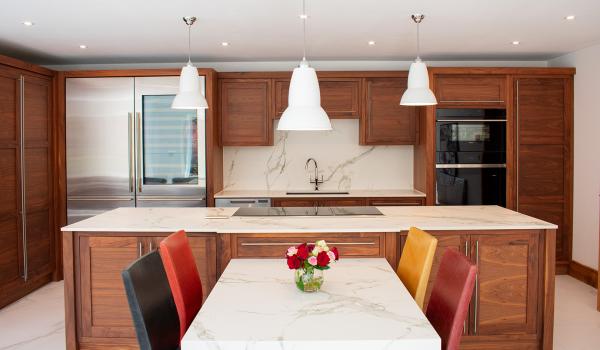
Porcelain Worktops
Premium Bespoke Sintered Stone Kitchen Surfaces Specialised For Your Home
What is Porcelain?
Porcelain is a highly durable and versatile material used for worktops, made from refined clay and minerals fired at extremely high temperatures. This process results in a non-porous, hard surface that is resistant to scratches, stains, and heat, making it ideal for kitchen and bathroom countertops. Porcelain worktops are also UV resistant, meaning they won't fade when exposed to sunlight, making them suitable for outdoor use. The material comes in various colours and finishes, often mimicking the look of natural stone, marble, or concrete, offering both aesthetic appeal and practical functionality.
What is the difference between Sintered Stone and Porcelain?
Sintered stone and porcelain are extremely similar surfaces, with their main difference being how they are manufactured. Both materials are non-porous, heat-resistant, and scratch-resistant, however, sintered stone is generally thicker and more dense, offering slightly more durability than porcelain. Porcelain is more versatile for certain applications like outdoor kitchens.
Porcelain Manufacturers
Porcelain Worktops Collection
Benefits of Porcelain Worktops
Impact resistant
Scratch resistant
UV resistant
Hygienic
Frost resistant
Heat resistant
How is Porcelain Made?
Porcelain is made by combining refined clay, such as kaolin, with minerals like feldspar and silica, and then firing the mixture at extremely high temperatures; typically around 1,200 to 1,400°C.
The process begins with the raw materials being finely ground and mixed with water to form a mouldable paste. This is then shaped into slabs, which are dried and fired at extreme temperatures. During the firing process, the minerals go through what is called vitrification, meaning they fuse and form a glass-like surface, which gives the stone its strength, hardness, and resistance to water/staining.
Design Choices for Porcelain Worktops:
Due to its nature as an engineered stone, porcelain comes in an incredible array of colours, patterns, and styles, meaning that there is a swatch that will suit any aesthetic preference. Here is a list of popular patterns available for porcelain worktops:
Marble Effect - Mimics the luxurious veining and patterns of natural marble
Concrete Look - Replicates the industrial aesthetic of raw or polished concrete
Stone Effect - Imitates natural stones like granite or slate, with organic textures
Wood Grain - Offers the appearance of natural wood with intricate grain patterns
Solid Colours - Smooth, uniform colour without pattern or texture, for a minimalist look
Metallic Finish - Provides a sleek, reflective surface with subtle metallic flecks
Matte or Satin Finish - Offers a soft, non-glossy surface with understated patterns
Textured Surface - Includes tactile finishes that mimic rough stone or leather textures
Geometric Patterns - Features modern designs with repeating shapes like hexagons or chevrons
Edge Profiles
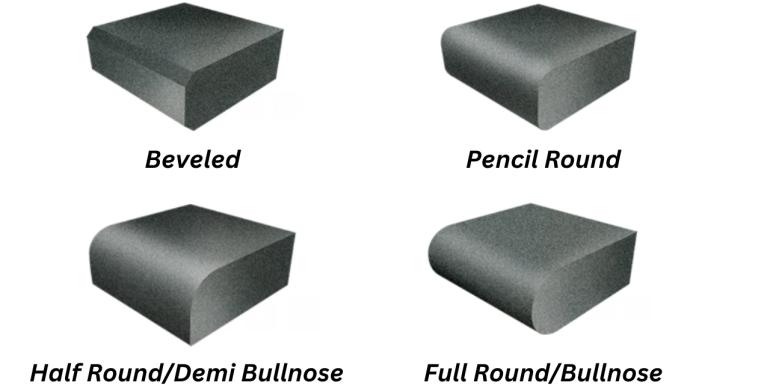
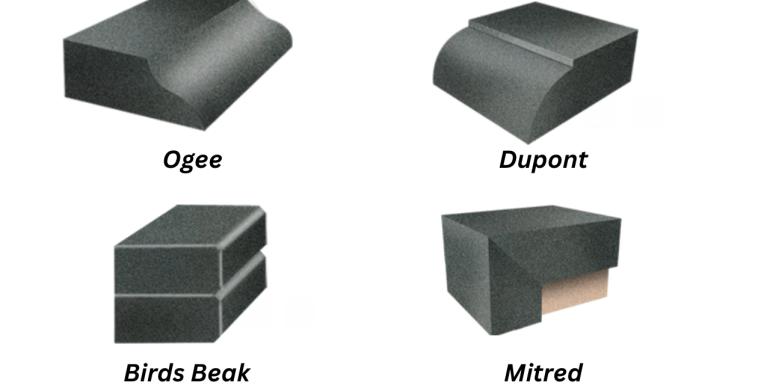
How are Porcelain Worktops Made?
Once we have our porcelain slabs loaded and ready to cut, DXF files from templating are uploaded to the machinery. The saw then cuts the worktops to the exact measurements with a 400mm water-cooled diamond blade. The worktops are then loaded into the edge polisher using vacuum lifters, and the flat edges are polished - this also creates a bevel using 5 stages of resin diamond grits and water
The polished worktops are then loaded onto CNC machines which cut the polished cutouts again using several diamond grinding and polishing heads, drainer grooves and some of the more detailed polished edges. Lastly, the tops go to our skilled masons for any hand finishing that is required and final quality checking.
Porcelain vs. Natural Stone
When comparing porcelain and natural stone for worktops, both offer distinct advantages depending on your needs. Porcelain is man-made, highly durable, non-porous, and resistant to scratches, stains, and heat, making it low-maintenance and ideal for kitchens. It's also available in a wide variety of patterns, including those that mimic natural stone, giving you aesthetic flexibility.
Natural stone, such as granite or marble, is prized for its unique, organic beauty and one-of-a-kind veining, but it is porous, requiring regular sealing to prevent stains and damage. While natural stone offers unparalleled luxury and timeless appeal, porcelain is more practical for those seeking a durable, easy-care option with a similar high-end look.
Additionally, porcelain is lighter and can be used in more applications, including vertical surfaces, while natural stone is heavier and may require more structural support.
How Do I Care for Porcelain Worktops?
For everyday cleaning, use a soft cloth or sponge with warm water and mild dish soap to wipe down the surface, and avoid using abrasive scrubbers or harsh chemical cleaners, as they can dull the finish over time.
Although porcelain is resistant to heat, it is still a good idea to use trivets or heat pads to protect the surface from extreme temperatures. Wash any spills, especially acidic substances like vinegar or lemon juice, immediately to prevent discolouration. Porcelain is highly scratch-resistant, however using chopping boards is always advised, to keep the surface looking pristine for years to come.
How Do I Get A Quote?
You can visit in person with a plan, send an email, request a site visit or email a kitchen plan to us. You can also get a price in a couple of minutes using our free worktop pricing tool
Do You Have a Showroom?
Yes we have a showroom with 100s of samples and lots of full slabs in our yard. It is well worth visiting to see our full range of materials. Customers often find it useful to bring other samples of textiles and flooring to ensure they choose the right worktop for their space. Come and visit us today; you can find us here:
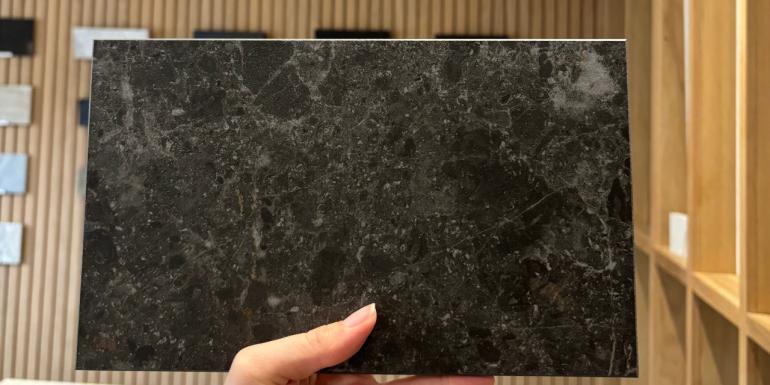
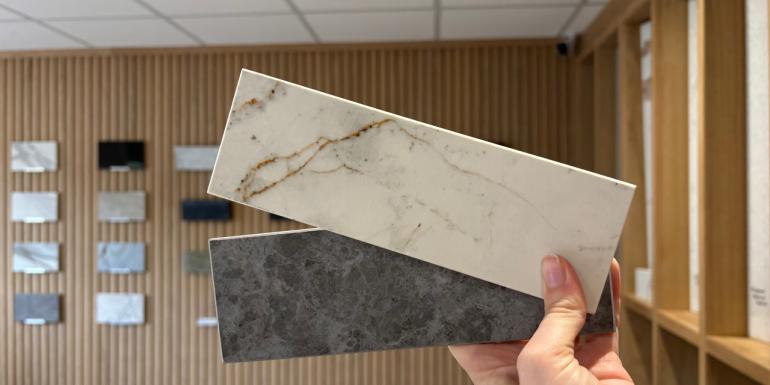
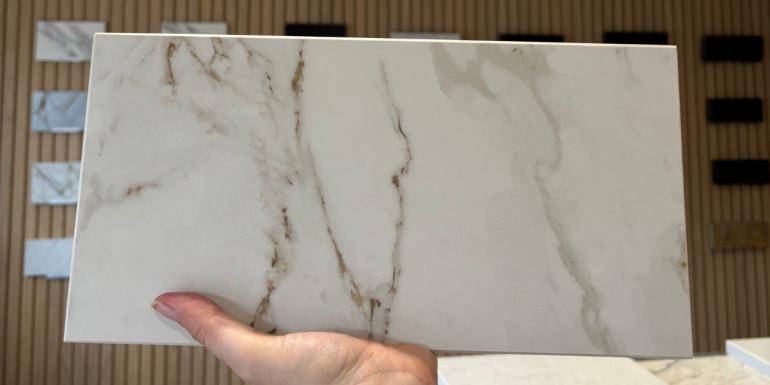
Invisacook
Invisacook takes modern technology and incorporates it into kitchen design. The burners are installed beneath your countertop, and using advanced invisa-induction technology, it works through the worktop to heat the pan and create cooking space that allows for a seamless interior. The worktops above the invisacook burners can also be used as traditional counter space when you're not cooking.
Manufacturers Approved for Invisacook:
- Caesarstone (Porcelain)
- Coverlam
- DEKTON
- Neolith
- Laminam
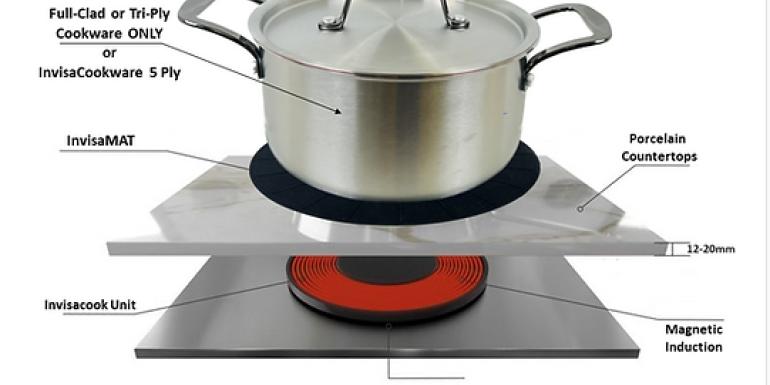
Can I Have a Matching Sink?
We are able to offer matching porcelain sinks for your kitchen worktops, using 1810 AXIX sinks. This concept allows you to have a combination of your chosen worktop material with a stainless steel sink. See an example of one we have fitted below, using DEKTON Laurent porcelain:
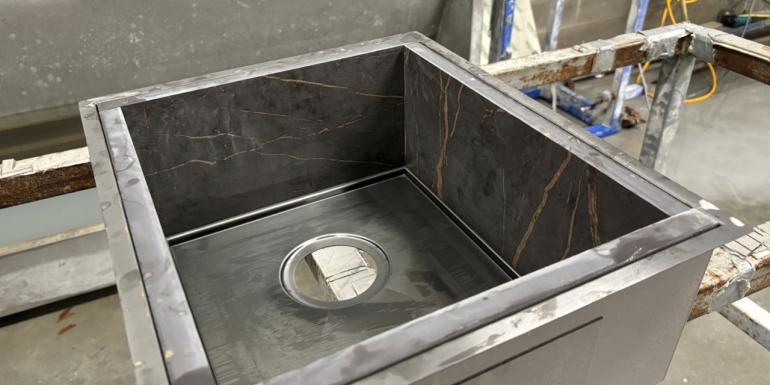
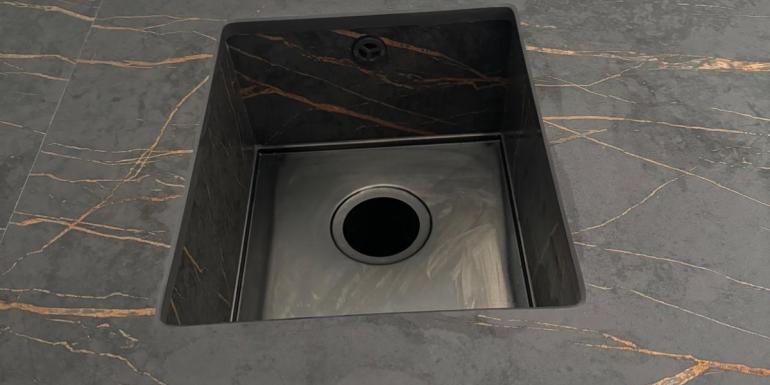
The 1810 AXIX sinks are available in stainless steel, copper, gold brass, gunmetal, and matte black finish. The sizes available are as displayed below:
New Cosentino Showroom

One of our largest porcelain suppliers, and the creators of DEKTON, Cosentino, has officially launched it's new London showroom; relocating from Clerkenwell, to Hatton Garden. Branded the 'Cosentino City London', the site has been transformed with an extensive renovation conducted by the Cosentino Design Team, while maintaining the original beauty of the space. The showroom stretches across three floors and over 420 sq. meters, promising a personalised experience, allowing visitors to experiment with samples from across their most popular ranges.
'Cosentino City London' is now open for all Henderstone customers, at 1 Hatton Garden, London, EC1N 8SJ

Instant Quote
Try our instant quotation tool and get a price right now not tomorrow.


